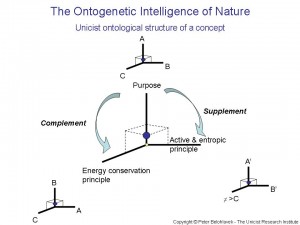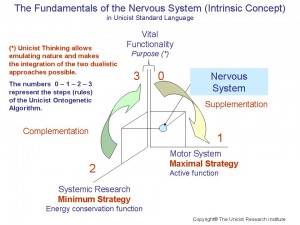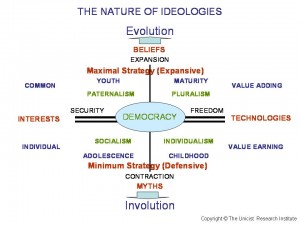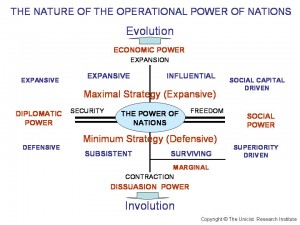Unicist Research: Closing the gap between macro and micro behavior
The Unicist Research closed the gap between macro and micro behaviour. The unicist complexity research approach implies dealing with applications while researching, which requires that the lapse of research time be very long in order to achieve fully accurate predicted results before validating a hypothesis.
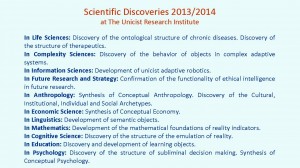 As it has been done every year since its foundation, The Unicist Research Institute synthesized this January the researches that had been finished until that time. After 38 years, 2013/2014, can be considered the year in which the integration of macro and micro behavior could be confirmed.
As it has been done every year since its foundation, The Unicist Research Institute synthesized this January the researches that had been finished until that time. After 38 years, 2013/2014, can be considered the year in which the integration of macro and micro behavior could be confirmed.
The gap between the macro and the micro cosmos has been and is still a problem that theoretical physicists are closing. The integration of the field of macro and micro behavior, that has been solved by Peter Belohlavek, is homologous. It allows integrating social behavior with individual behavior, making human complex adaptive systems manageable.
The publication of Conceptual Economics, Conceptual Anthropology and Conceptual Psychology are some of the milestones of this process that included the researches developed in 2013-2014 (see image above).
You can access Conceptual Economics and Conceptual Anthropology at:
http://www.unicist.org/repo/#Economy
If you want to access the “Drivers of Human Behavior” that explain the structure of human intelligence, please access: www.unicist.org/repo/#Psychology
Unicist Press Committee
NOTE: The Unicist Research Institute was the pioneer in using the unicist logical approach in complexity science research and became a private global decentralized leading research organization in the field of human adaptive systems. It has an academic arm and a business arm. http://www.unicist.org/repo/#Unicist
